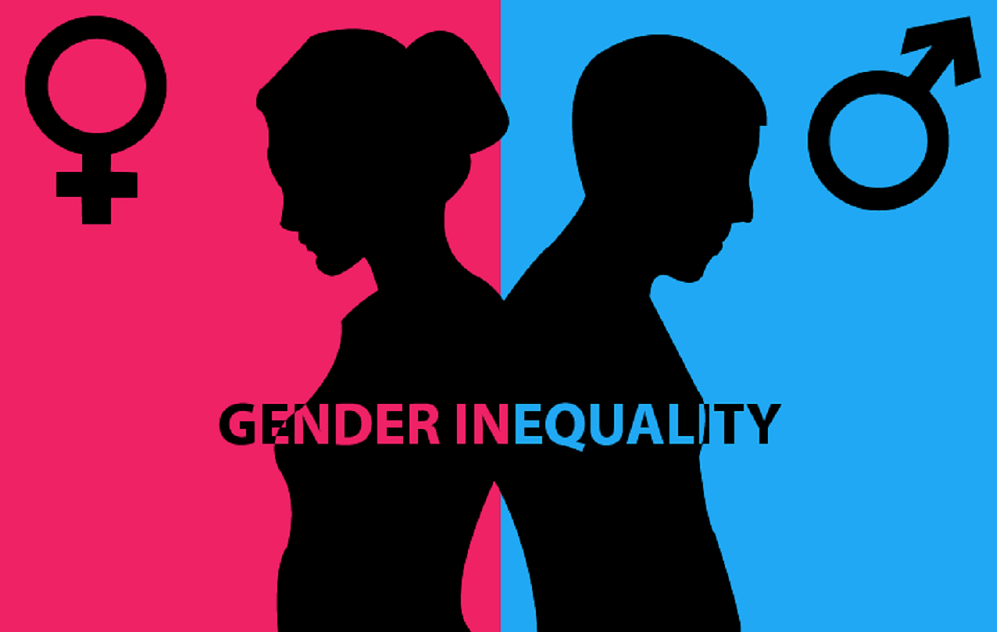Femi Adeyomo
It is an undisputed fact that for the most part of history, women have not enjoyed equal rights. Only several decades back, the general belief surrounding women’s roles were restricted to duties at home, childbearing, and work in “the kitchen.” This perception brought a tremendous amount of disregard and prejudice against women, not only at the family and community level, but glaring misrepresentations and stereotypical portrayals in mainstream media. Above all, women were prohibited from important decision-making, leadership positions; access to higher education and professional aspiration.
Perhaps one of the most notable shifts in the movement for women’s rights was the Women’s Strike for Equality on August 26, 1970. The strike took place in the United States to celebrate the 50th anniversary of the passing of the 19th Amendment, which effectively gave women in America the right to vote. About 50,000 women gathered for the protest, and at that time, it was noted to be the largest gathering on behalf of women in history. The strike had specific goals, including equal opportunity in the workforce and free child care. Today, it is viewed as a movement responsible for political rights for women, social equality in relationships and income equality in the United States and all over the world.
- Conflicts in countries, regions tear Africa apart
- We lost everything to tanker fire, Benue community laments
In Nigeria, gender inequality has heavily pervaded society. Women constitute about 49.33 per cent of the Nigerian population, approximately 99.13 million in total. However, female participation in formal and informal structures, processes and key decision making remains insignificant. This is largely because of discriminatory social norms, marginalization and economic disparity, which dictates the lives of women in Nigeria.
According to NOI Polls, which sought to identify socio-economic challenges faced by women, the results revealed that 42 per cent lacked financial empowerment, 35 per cent were poor, 33 per cent lacked access to quality education , 19 per cent had experienced domestic and sexual abuse, and 17 per cent faced gender discrimination in employment.
However, recent developments in Nigeria and across the globe, are proof that things are changing. A few years ago, if you had told people that a woman would hold executive positions in organizations or political institutions, many would have shown disbelief. On March 1, 2021, Dr Ngozi Okonjo-Iweala, a Nigerian political figure and economist, became the first woman and first African to serve as the Director-General of the World Trade Organization, a landmark achievement for women and Africans all over the world. This victory, and many others, have become a clear sign that female empowerment, equality, and leadership are necessary to foster positive change in society.
We need all hands on deck to close gender gaps.
“We have made great progress on gender equality and we can’t allow it to be eroded. We need to act now to ensure that while we continue responding to the health and economic crisis, we find ways to progress women’s economic empowerment and equality, in education, in the home and in the workplace. At P&G, we will keep using the voice of our company in forums such as #WeSeeEqual to drive discussion and action on the issues that matter.” Those were the words of Adil Farhat, the Managing Director of Procter & Gamble Nigeria, during the company’s flagship gender equality summit, #WeSeeEqual Summit, in partnership with the UNWomen.
During the summit, Dr Zainab Bagudu, the First Lady of Kebbi State described the #WeSeeEqual Summit as an inspiring platform to motivate change in Nigeria towards gender inequality, stating the importance of collaboration between private and public institutions in the fight against gender inequality.
It is important for individuals and organizations to recognize that we can all be forces for good in the space of gender equality. Our combined efforts as citizens, neighbours and humans will ensure that the opportunities and resources needed to secure and preserve gender equality.
We need new, radical collaborations that don’t just focus on the financial sources, but bring together all partners at the start.
Looking at the 70s, 80s and even a large part of the 90s, it can be said that there is now a significant improvement in reducing gender inequalities in Nigeria, no denying that we are still well behind it. When you look at the 17 action points of the Sustainable Development Goals, which is the most comprehensive global roadmap to shared human progress, it is impossible to overlook the centrality of its call for gender equality and reducing inequalities. Indeed, it is improbable that the world could attain significant success in almost any action area of the SDGs – from ensuring quality health care, education and sanitation for all to reducing poverty, ending hunger, providing productive employment or enabling strong institutions – without achieving strongly in gender equality and reducing inequalities.
Private organisations must play their part in facilitating gender equality. Also, there is the need for everyone to take up space and amplify gender equality, to secure a better future for all women.
Mr Femi writes from Lagos

 Join Daily Trust WhatsApp Community For Quick Access To News and Happenings Around You.
Join Daily Trust WhatsApp Community For Quick Access To News and Happenings Around You.


